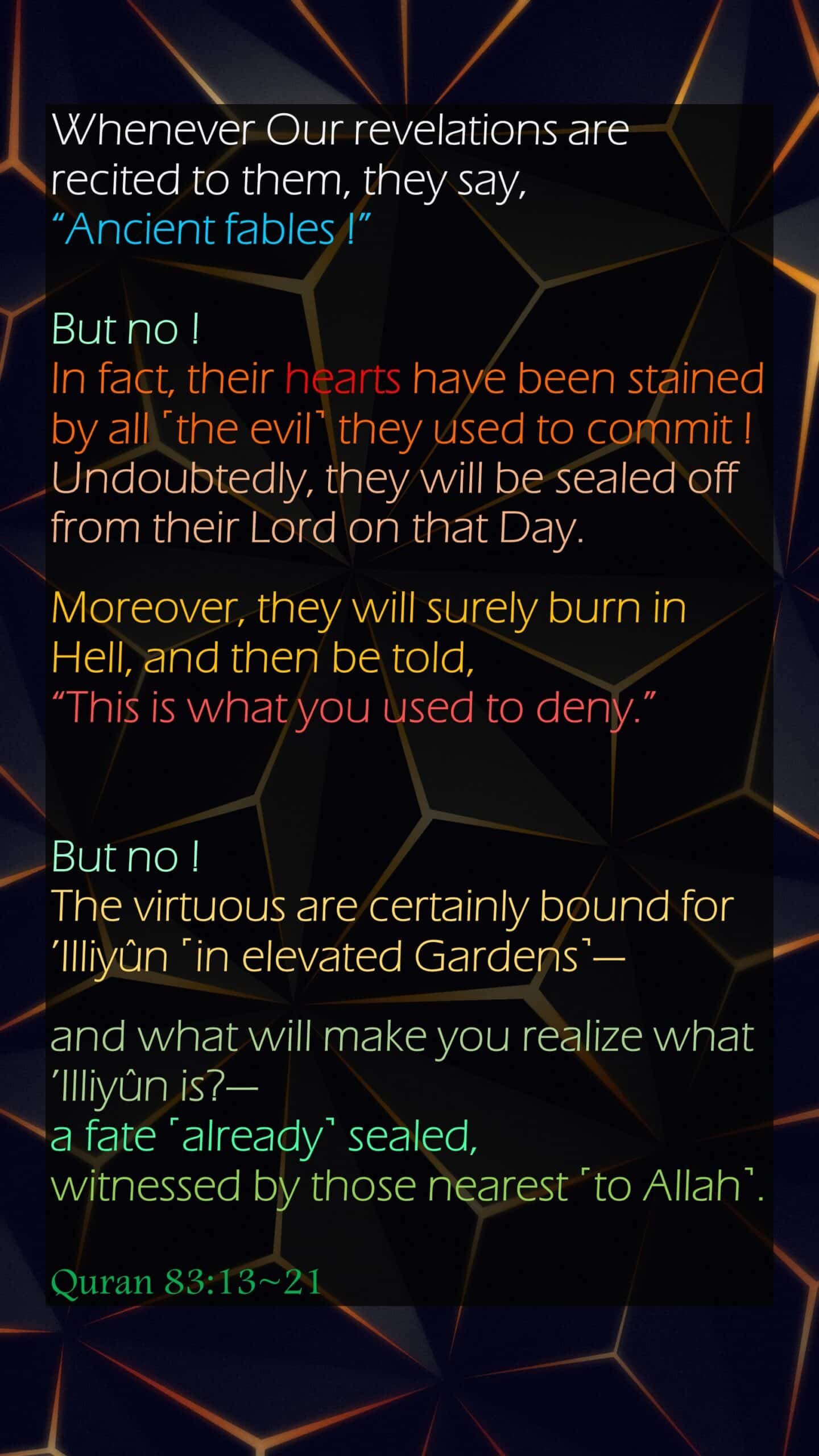Skip to Content
Tag Archives: Bliss
- Home -
- Posts tagged "Bliss"
25
Jul, 2024
Islam, Quran
Allah, authority, ayat, benefit, Bliss, burn, burst apart, daily, day, entire, escape, hell, inspirations, intifar, islam, islamic, judgement, Muhammad, none, quran, Soul, Surah, undivided, virtous, wicked
13
Nov, 2023
Islam, Quran
All-Wise, Almighty, ayat, Bliss, daily, Gardens, Gardens of Bliss, good-doers, inspirations, islam, islamic, Muhammad, promise, quran, Surah, true
10
Apr, 2023
Islam, Quran
Allah, ancient, ayat, Bliss, burn, Chapter 83, commit, daily, day, dear, deeds, deny, elevated, fables, fate, Gardens, hearts, hell, illiyun, inspirations, islam, islamic, judgement, Near, quran, revelations, sealed, sealed off, stained, Surah, verses 13 to 21, virtous, witness, سورة المطفّفِین
8
Oct, 2022
Islam, Quran
Allah, ayat, believed, Bliss, cause, Chapter 9, daily, emigrated, everlasting, Gardens, great, greater, inspirations, islam, islamic, lives, Mercy, pleasure, quran, rank, repentence, reward, sight, stay, strived, Surah, tauba, triumph, verses 20 to 22, wealth
12
Jul, 2022
Islam, Quran
Abrahim, Allah, ash-Shu`ara', Award, ayat, Azar, Bless, Bliss, chapter 26, creator, daily, garden, generations, grant, Guider, Healer, Heaven, honorable, Ibrahim, inspirations, islam, islamic, later, Lord, me, mention, Poets, provider, quran, Resurrector, righteous, supplication, Surah, SWT, verses 78 to 85, wisdom





